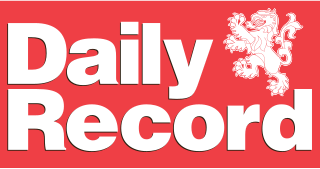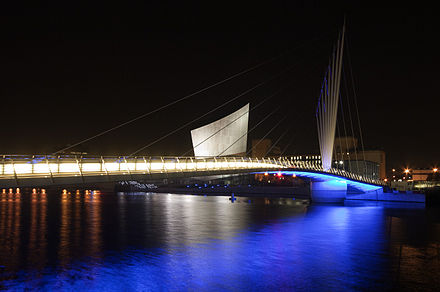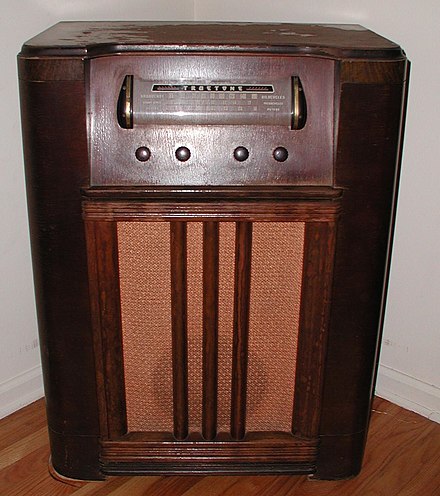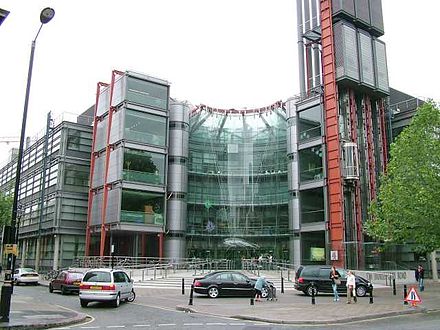
Channel 4 is a British public-service free-to-air television network headquartered in Leeds, United Kingdom. The channel was established to provide a fourth television service to the United Kingdom in addition to the licence-funded BBC One and BBC Two, and the single commercial broadcasting network ITV. It began transmission on 2 November 1982. Although largely commercially self-funded, it is ultimately publicly owned; originally a subsidiary of the Independent Broadcasting Authority (IBA), the station is now owned and operated by Channel Four Television Corporation, a public corporation of the Department for Digital, Culture, Media and Sport, which was established in 1990 and came into operation in 1993. In 2010, Channel 4 extended service into Wales and became a UK-wide television channel.
In the United Kingdom, the term "public service broadcasting" refers to broadcasting intended for public benefit rather than to serve purely commercial interests. The communications regulator Ofcom requires that certain television and radio broadcasters fulfil certain requirements as part of their license to broadcast. All of the BBC's television and radio stations have a public service remit, including those that broadcast digitally.
Television in the United Kingdom started in 1936 as a public service which was free of advertising. Currently, the United Kingdom has a collection of free-to-air, free-to-view and subscription services over a variety of distribution media, through which there are over 480 channels for consumers as well as on-demand content. There are six main channel owners who are responsible for most material viewed. There are 27,000 hours of domestic content produced a year at a cost of £2.6 billion. Since 24 October 2012, all television broadcasts in the United Kingdom have been in a digital format, following the end of analogue transmissions in Northern Ireland. Digital content is delivered via terrestrial, satellite and cable, as well as over IP. As of 2003, 53.2% of households watch through terrestrial, 31.3% through satellite, and 15.6% through cable.

Independent Television News (ITN) is a UK-based television production company. It is made up of two divisions: Broadcast News and ITN Productions. ITN is based in London, with bureaux and offices in Beijing, Brussels, Jerusalem, Johannesburg, New York, Paris, Sydney and Washington DC.

BBC Television is a service of the BBC. The corporation has operated in the United Kingdom under the terms of a royal charter since 1927. It produced television programmes from its own studios from 1932, although the start of its regular service of television broadcasts is dated to 2 November 1936.

The Daily Record is a tabloid newspaper based in Glasgow, Scotland. It is published six days a week, and its sister paper is the Sunday Mail. As part of Reach plc, it has a close kinship with the UK-wide Daily Mirror, with major stories of British significance being reported in both titles.

ITV plc is a British media company that holds 13 of the 15 regional television licences that make up the ITV network, the oldest and largest commercial terrestrial television network in the United Kingdom. The network, which is branded ITV by ITV plc, has vied with BBC One for the status of the UK's most watched channel since the 1950s.
What The Papers Say is a British radio and television, series. It consists of quotations from headlines and comment pages in the previous week's newspapers, read in a variety of voices and accents by actors. The quotes are linked by a script read by a studio presenter, usually a prominent journalist. The show did not have a regular host, and was intended as a wry look at how British broadsheets and tabloids covered the week's news stories. The programme was most recently broadcast on BBC Radio 4.
Mainstream media is a term and abbreviation used to refer collectively to the various large mass news media that influence many people, and both reflect and shape prevailing currents of thought. The term is used to contrast with alternative media which may contain content with more dissenting thought at variance with the prevailing views of mainstream sources.
The Media of Ireland includes all the media and communications outlets of Ireland.
This article deals with the Media in Glasgow. The city of Glasgow, Scotland is home to large sections of the Scottish national media. It hosts the following:

Scottish media has a long and distinct history. Scotland has a wide range of different types and quality of media.

The media in the San Francisco Bay Area has historically focused on San Francisco but also includes two other major media centers, Oakland and San Jose. The Federal Communications Commission, Nielsen Media Research, and other similar media organizations treat the San Francisco-Oakland-San Jose Bay Area as one entire media market. The region hosts to one of the oldest radio stations in the United States still in existence, KCBS (AM) (740 kHz), founded by engineer Charles Herrold in 1909. As the home of Silicon Valley, the Bay Area is also a technologically advanced and innovative region, with many companies involved with Internet media or influential websites.
The media in Northern Ireland are closely linked to those in the rest of the United Kingdom, and also overlap with print, television, and radio in the Republic of Ireland.
As the capital of Wales, media in Cardiff plays a large role in the city and nationwide. Employment in the sector has grown significantly in recent years, and currently provides employment for 2.1% of the city's workforce – higher than the level across Wales (1.1%) and marginally lower than that across Great Britain as a whole (2.2%).
The British Broadcasting Corporation (BBC) is a British public service broadcaster. Its headquarters are at Broadcasting House in Westminster, London. It is the world's oldest national broadcaster, and the largest broadcaster in the world by number of employees. It employs over 22,000 staff in total, more than 16,000 of whom are in public sector broadcasting. The total number of staff is 35,402 when part-time, flexible, and fixed-contract staff are included.

Media in Manchester has been an integral part of Manchester's culture and economy for many generations and has been described as the only other British city to rival to London in terms of television broadcasting. Today, Manchester is the second largest centre of the creative and digital industries in Europe..
The city of Birmingham, England is home to an evolving media industry, including news and magazine publishers, radio and television networks, film production and specialist educational media training. The city's first newspaper was published in 1732.
Media of Jersey consist of several different types of communications media: television, radio, newspapers, magazines, and Internet-based Web sites.

STV Group plc is a media company based in Glasgow, Scotland. Beginning as a television broadcaster in 1957, the company expanded into newspapers, advertising and radio; after completing a restructuring in 2010, STV Group is active in broadcast television, video-on-demand and television production. The company is a constituent of the FTSE SmallCap Index.












